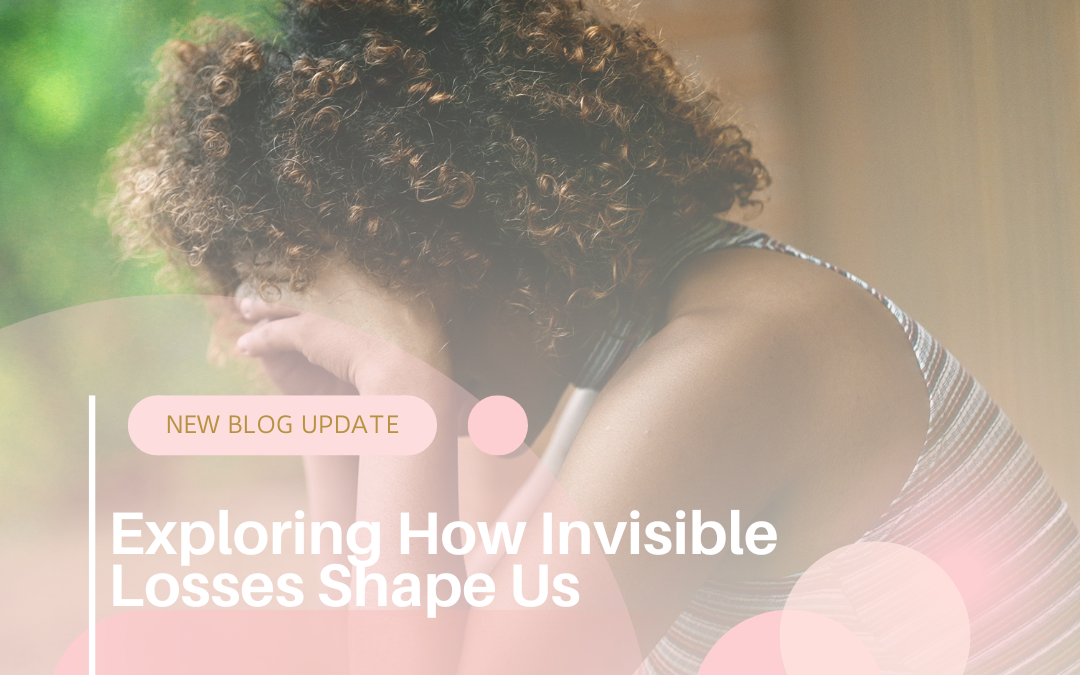“Just because something never happened doesn’t mean the pain isn’t real.”
When we think of grief, we often think of funerals, goodbyes, and endings we can name. The loss of a loved one. The end of a relationship. The passing of time.
But some grief is harder to name — because it’s not about what we lost, but what we never had in the first place.
This is the grief of the invisible. The intangible. The unmet. And for many people, it’s one of the deepest, most confusing kinds of emotional pain.
What Is “Non-Event” Grief?
Psychologists sometimes call it “non-event grief” — the mourning of something that should have happened, could have happened, but didn’t.
This might include:
The nurturing childhood you never received.
The safety you never felt in your home.
The parent who was physically present but emotionally absent.
The stable relationship you longed for but never got to build.
The version of yourself you were never allowed to become.
Because nothing happened in a visible, dramatic way, many people don’t realize what they’re carrying. There’s no ceremony for these kinds of losses. No cards. No casseroles. Just a vague ache. A sense of emptiness. A “why am I still stuck?” feeling that words struggle to explain.
Why This Grief Is Often Overlooked
Invisible grief is easy to dismiss — especially in a world that asks for proof of pain.
Clients often say:
“But my parents weren’t that bad.”
“I had food and shelter — what am I complaining about?”
“Nothing happened to me.”
But grief is not a competition. Your pain doesn’t need to be compared to someone else’s tragedy to be valid. If a need went unmet — especially during your formative years — your body and psyche registered that absence. And it matters.
Grieving what you never had is part of healing what was never nurtured.
What Invisible Loss Feels Like
These are losses without clean edges. They linger in:
A deep longing that doesn’t go away.
Difficulty trusting others or yourself.
Emotional triggers you can’t logically explain.
Relationships where you keep playing out old wounds.
A persistent sense of “not being enough,” even when things go well.
This grief is often entangled with shame — the belief that you were the problem or you should’ve coped better. But children adapt to survive, not thrive. And when love or security were conditional, grief can get buried under layers of coping.
Making Space to Mourn
Grieving what you never had isn’t about blaming others forever or staying stuck in the past. It’s about honoring what was missing so you can stop internalizing it as a personal flaw.
This might mean:
Writing a letter to the parent or caregiver who couldn’t show up how you needed.
Speaking aloud the truths no one acknowledged.
Naming the version of yourself you lost in order to belong or survive.
Allowing yourself to feel sad, even if others don’t understand why.
It’s okay to mourn something that never existed. It’s okay to need closure for things that were never whole.
How Therapy Can Help
Many people come to therapy not knowing they are grieving. They just know they feel stuck. Unfulfilled. Disconnected.
Therapy provides a safe space to:
Explore hidden grief without judgment.
Process how early emotional neglect or trauma shaped your self-image.
Practice self-compassion for the needs that were unmet.
Rebuild identity on your own terms.
Grieving what you never had isn’t about dwelling. It’s about validating your experience — so healing has a chance to begin.
Final Thoughts
Loss doesn’t always come with a funeral. Sometimes it comes with silence. With never hearing “I’m proud of you.” With never feeling safe to cry. With growing up too fast. With shrinking yourself to fit in.
You’re allowed to grieve these things.
And you’re allowed to heal them.
Because what you didn’t get wasn’t your fault.
But giving yourself what you need now — that can be your freedom.If you’re ready to begin unpacking the invisible grief you’ve been carrying, our therapists are here to support you. You don’t have to name it perfectly. You just have to begin.


Recent Comments